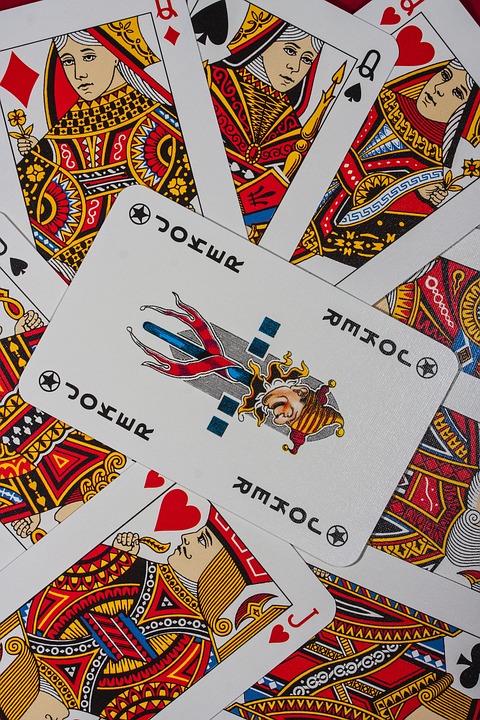From Awareness to Action: Effective Responsible Gaming Campaigns in the Philippines

The Philippines has established itself as a prominent player in the global gaming and entertainment industry, with a thriving market that attracts both local and international participants. As the gambling sector continues to grow, the importance of responsible gaming — ensuring that players engage in gambling activities in a safe and controlled manner — has become increasingly crucial. Recognizing this, several organizations and government bodies have implemented effective responsible gaming campaigns aimed at promoting awareness and preventive measures. This article explores these initiatives and the critical transition from awareness to actionable change in the Philippines. Understanding Responsible Gaming Responsible gaming refers to the efforts made to minimize the risks associated with gambling, ensuring that it remains an enjoyable form of entertainment. This encompasses education about gambling-related harms, self-exclusion measures, and the availability of support resources for those who may develop problem gambling behaviors. In a country like the Philippines, where gaming is an integral component of leisure and tourism, fostering a culture of responsibility is essential for protecting players and maintaining the integrity of the industry. The Current Landscape of Gaming in the Philippines The Philippine gaming industry has expanded significantly since the establishment of the Philippine Amusement and Gaming Corporation (PAGCOR) in 1977, which serves as both the regulatory body and one of the operators in the sector. This expansion includes a growing number of casinos, online betting platforms, and gaming facilities. However, alongside this growth comes the challenge of ensuring that individuals engage in these activities responsibly. Campaigns Promoting Responsible Gaming 1. Public Awareness Campaigns One of the most effective ways to promote responsible gaming is through public awareness campaigns. Initiatives led by both PAGCOR and local NGOs focus on educating the community about the risks associated with gambling, the signs of problematic behavior, and the resources available for support. These campaigns often leverage social media, television commercials, and community events to reach a wide audience. For instance, PAGCOR’s "Responsible Gaming" campaign emphasizes the importance of setting limits and recognizing the difference between casual gaming and compulsive gambling. They provide informative materials that help players identify potential problems early on and encourage them to seek help. 2. Partnerships with Non-profit Organizations Collaboration with non-profit organizations has been a cornerstone of responsible gaming initiatives in the Philippines. Organizations such as the Center for Addiction Treatment and Self-Help (CATS) offer counseling and support services for individuals struggling with gambling addiction. By partnering with these entities, government bodies can enhance their outreach efforts, ensuring that help is readily available to those who need it. In 2020, the Responsible Gaming Awareness Seminar was launched, targeting both operators and consumers. This initiative aims to create a collaborative environment where stakeholders can share best practices and strengthen the overall approach to responsible gaming. 3. Regulatory Framework and Self-Exclusion Programs The Philippine government has also taken steps to implement a regulatory framework that enforces responsible gaming practices among operators. This includes mandatory training for casino staff on identifying and assisting potentially problematic gamblers and the establishment of self-exclusion programs. Such programs allow players to voluntarily exclude themselves from gaming activities, offering them the chance to take a break and seek support if needed. Transitioning from Awareness to Action While awareness campaigns are crucial, they must translate into measurable action for responsible gaming initiatives to be effective. Here are several ways to ensure that awareness leads to tangible change: 1. Access to Support Services Providing easy access to support services is paramount. This includes establishing helplines, online chat services, and local support groups to help individuals navigate their gambling behaviors. Increased visibility and accessibility to these resources can encourage individuals to seek help before problems escalate. 2. Creating a Safe Gaming Environment The industry must prioritize creating a safe environment for all players. This includes training employees to identify signs of problem gambling, implementing customer feedback systems to improve service, and maintaining transparent practices that encourage responsible play. 3. Regular Monitoring and Evaluation To measure the effectiveness of responsible gaming campaigns, regular monitoring and evaluation are essential. This can include surveys, feedback from industry stakeholders, and analysis of gaming-related incidents. Employing evidence-based approaches will help refine strategies and ensure that campaigns are meeting their goals. Conclusion The journey from awareness to action in promoting responsible gaming in the Philippines is ongoing. As the gaming industry continues to flourish, so must the efforts to create a culture of responsibility and safety. Through effective campaigns, partnerships, and a strong regulatory framework, the Philippines can lead the way as a model for responsible gaming practices in the region. By empowering individuals with the knowledge and resources they need, the country can ensure that gaming remains a safe and enjoyable pastime for all.
Responsible Gaming in the Philippines: Strategies to Protect Players and Promote Wellness

As the gaming industry in the Philippines continues to expand, with the rise of online gaming platforms and local casinos, the need for responsible gaming practices has become increasingly urgent. Recognizing the potential risks associated with gambling, stakeholders—including the government, gaming operators, and non-governmental organizations—are implementing strategies to promote a safe, enjoyable, and responsible gaming environment. This article explores the importance of responsible gaming in the Philippines, its impact on players, and the strategies being employed to protect individuals and promote overall wellness. Understanding Responsible Gaming Responsible gaming refers to practices and policies designed to minimize the risks of gambling-related harm while maximizing the entertainment value of gaming. This concept encompasses not only the responsibility of operators to provide a safe gaming environment but also the duty of players to participate in gambling activities mindfully and within their means. The Importance of Responsible Gaming Gambling can lead to various issues, including addiction, financial instability, and strained relationships. The Philippines has witnessed both the positive economic impact of the gaming industry and the potential negative consequences related to compulsive gambling behaviors. By prioritizing responsible gaming, the nation can ensure that its gaming landscape remains sustainable, benefiting not only the industry but also its players and society as a whole. Current Landscape of Gambling in the Philippines The Philippines is home to a burgeoning gaming industry, supported by the Philippine Amusement and Gaming Corporation (PAGCOR), which regulates both land-based and online gaming entities. The emergence of online gaming and platforms catering to an international audience has raised concerns about player protection and the need for effective regulatory measures. Strategies for Promoting Responsible Gaming 1. Regulation and Licensing PAGCOR plays a crucial role in enforcing responsible gaming regulations. By requiring gaming operators to obtain licenses, the government sets standards for fair play, transparency, and ethics. This includes mandating training for personnel to recognize the signs of problem gambling and provide support to at-risk players. 2. Player Education Educating players about responsible gaming is essential. Operators are encouraged to provide information on setting limits, understanding the odds, and recognizing signs of gambling addiction. Workshops, online resources, and outreach programs can empower players to make informed choices about their gambling habits. 3. Self-Exclusion Programs Many casinos and online gaming sites are implementing self-exclusion programs, allowing individuals to voluntarily ban themselves from participating in gambling activities for a specified period. These programs are intended to help individuals who recognize that they may have a gambling problem and need a break from gaming. 4. Support Services Collaboration with mental health organizations, such as the National Center for Mental Health and local NGOs, is vital in providing resources for individuals struggling with gambling addiction. Hotlines, counseling, and support groups can offer much-needed assistance and promote recovery pathways for those affected by problem gambling. 5. Community Outreach and Awareness Campaigns Raising awareness about responsible gaming extends beyond casinos and gaming operators. Community outreach campaigns can educate the public about the benefits of responsible gaming practices and the risks associated with gambling. Such initiatives may include community workshops, media campaigns, and partnerships with local organizations to foster a broader understanding and acceptance of responsible gaming. 6. Monitoring and Research Ongoing research into gambling behaviors and the effectiveness of responsible gaming measures is crucial. Institutions can conduct studies to identify trends in gambling addiction and assess the impact of current policies. This data-driven approach allows for the development of informed strategies that respond effectively to emerging challenges. Conclusion As the gaming industry in the Philippines continues to evolve, it is imperative that stakeholders prioritize responsible gaming to safeguard player interests and promote wellness. Through effective regulation, education, support services, and community outreach, the nation can create a gaming environment that is not only entertaining but also safe and sustainable. By fostering a culture of responsible gaming, the Philippines can ensure that its vibrant gaming industry remains a source of joy and healthy recreation for its players while mitigating potential risks.
A Culture of Care: How the Philippines is Changing the Gambling Narrative

A Culture of Care: How the Philippines is Changing the Gambling Narrative In recent years, the Philippines has gained international attention not only for its beautiful landscapes and rich culture but also for its vibrant and rapidly evolving gambling industry. As a nation that has historically embraced gaming as a form of entertainment, it is now charting a new course by emphasizing a culture of care, safety, and social responsibility. The Evolution of Gambling in the Philippines The Philippines has a long history of gambling, from traditional games such as sabong (cockfighting) to the establishment of national lotteries. However, the creation of the Philippine Amusement and Gaming Corporation (PAGCOR) in 1977 marked a turning point, as it regulated and promoted gambling as an essential economic activity. In the years since, the country has become a hub for various forms of gaming, including casinos, online gambling, and sports betting, attracting millions of tourists and generating significant revenue. Despite its economic contributions, the gambling landscape has not been without challenges. Concerns about addiction, crime, and social inequalities have prompted a reevaluation of how gambling activities are managed and promoted. The Philippines is now taking decisive steps to reshape the gambling narrative towards one that prioritizes social responsibility and care. The Shift Towards Social Responsibility The culture of care in the Philippine gambling industry is characterized by a commitment to responsible gaming practices. Stakeholders, including government agencies, casino operators, and advocacy groups, are working together to implement measures that prioritize the well-being of individuals and communities. Responsible Gaming Programs: Many casinos and gaming establishments have adopted responsible gaming programs that provide resources for players. These programs include self-exclusion options, educational materials about the risks of gambling, and access to professional support services. By promoting awareness and providing tools for responsible gambling, operators aim to reduce the incidence of gambling addiction and its associated harms. Community Engagement: The gambling industry in the Philippines is increasingly recognizing the importance of giving back to the communities it serves. Many gaming establishments are involved in philanthropic initiatives, funding educational programs, healthcare services, and disaster relief efforts. This community-focused approach fosters goodwill and demonstrates a commitment to social responsibility. Regulatory Framework: The Philippine government has implemented strict regulations to ensure that the industry operates responsibly. The PAGCOR mandates adherence to responsible gaming practices and monitors compliance among licensees. This regulatory oversight helps protect vulnerable populations and ensures that gambling activities do not become exploitative. Changing the Narrative The narrative surrounding gambling in the Philippines is shifting. No longer viewed solely as a source of vice or moral decay, the industry is increasingly portrayed as a potential driver of social good. By emphasizing responsible gaming and community engagement, the Philippines is working to change perceptions and foster a more positive image of gambling. Documentaries and media campaigns are beginning to highlight stories of change, showcasing individuals who have found help through responsible gaming initiatives and highlighting community projects funded by gaming revenues. This new narrative underscores the idea that gambling, when managed responsibly, can coexist with a culture of care and contribute positively to society. Case Studies of Success Several casinos and gaming establishments are leading the way with innovative programs. For instance, one prominent casino in Manila has implemented training for all employees to identify signs of problem gambling and offer assistance to guests in need. By taking a proactive approach, they not only protect their patrons but also create a more welcoming environment. Moreover, local governments are collaborating with gaming operators to conduct workshops and seminars aimed at raising awareness about gambling addiction and available support services. These partnerships are crucial in building a network of care that extends beyond individual establishments to the community at large. Conclusion As the Philippines carves out a new identity in the global gambling landscape, the emphasis on a culture of care is a game-changer. By prioritizing social responsibility, creating effective support systems, and promoting community engagement, the nation is redefining what it means to participate in gaming. The transitioning narrative showcases the potential for gambling to contribute positively to society while ensuring the welfare of individuals and communities. The Philippines offers valuable insights into how an industry often viewed with skepticism can pivot towards a more compassionate model. As other nations observe this evolution, they may find inspiration to foster similar cultures of care within their own gambling landscapes, paving the way for a more responsible future in gaming worldwide.
Beyond Entertainment: Understanding the Importance of Responsible Gaming in the Philippines

In recent years, the gaming and gambling industry in the Philippines has flourished, becoming one of the fastest-growing segments of the national economy. With the proliferation of online gaming platforms, casinos, and other betting outlets, the allure of potential wins has captivated many Filipinos. However, this explosion of entertainment opportunities brings with it significant societal responsibilities. As the allure of gaming deepens, the need for responsible gaming practices becomes paramount. Understanding this importance is essential in safeguarding individuals and communities from the risks associated with excessive gambling. The Gaming Landscape in the Philippines The Philippine gaming industry encompasses a broad spectrum of activities, including traditional casinos, lottery, sports betting, and burgeoning online gaming platforms. In 2022, the Philippine Amusement and Gaming Corporation (PAGCOR) reported substantial revenues from these ventures, highlighting the economic benefits of a thriving gaming sector. Yet, the increased availability and accessibility of gaming options can lead to a vulnerable population, particularly among younger demographics who may be more susceptible to the allure of easy money. Defining Responsible Gaming Responsible gaming is a principle that emphasizes the importance of moderation, awareness, and control. It encourages players to engage with gaming activities as a form of entertainment rather than a source of income. In essence, responsible gaming involves understanding one’s limits, recognizing problem behaviors, and knowing when to seek help. In the Philippines, responsible gaming initiatives focus on several key areas: Education and Awareness: Informing players about the risks of gambling and the signs of problem gambling is vital. Education campaigns can empower individuals to make informed decisions. Self-Exclusion Programs: Providing options for individuals to voluntarily limit their access to gaming environments can help mitigate the risks of compulsive gambling. These programs allow players to take control and step back when necessary. Support and Treatment: Heightened awareness of gambling addiction enables better support structures. Resources should be available for individuals who find themselves struggling with gambling-related issues, including counseling and treatment options. The Societal Impact of Gambling While the gaming industry can contribute to economic growth, it also poses risks to society at large. Studies have identified various social issues arising from gambling addiction, including financial distress, relationship breakdowns, and mental health concerns. In the Philippines, these issues can be exacerbated by existing social vulnerabilities, such as poverty and lack of access to education. The government and industry stakeholders must acknowledge that the high engagement rates in gaming bring not only fiscal benefits but also the potential for harm. Thus, promoting responsible gaming is not merely a regulatory obligation; it is a moral imperative necessary for safeguarding the well-being of citizens. Government and Industry Initiatives The Philippine government, through PAGCOR, has taken steps to address the implications of the gaming boom. Guidelines on responsible gaming have been recommended, and regulations are in place to ensure that gaming operators implement measures promoting responsible practices. Furthermore, collaborations with non-governmental organizations and international bodies are fostering a more holistic approach to addressing gambling-related issues. Gaming operators themselves are also increasingly recognizing the importance of responsible gaming. Many have implemented policies that prioritize player safety and well-being, including training staff to identify and assist problematic behaviors. By promoting responsible gaming, these businesses can enhance their reputations while also contributing positively to the community. The Way Forward As the Philippine gaming industry continues to evolve, the focus on responsible gaming must remain a priority. This requires a collective effort from government entities, industry players, and civil society. Implementing comprehensive education campaigns, improving accessibility to support services, and fostering a culture of responsible behavior are all crucial steps forward. Moreover, as digital gaming continues to rise, additional precautions will be necessary. Online platforms must incorporate safeguards that encourage responsible play, such as deposit limits, timers, and regular prompts about safe gaming practices. In conclusion, while gaming offers entertainment and economic opportunities in the Philippines, it is essential to acknowledge and address the potential risks associated with it. Responsible gaming is critical in ensuring that the joy of gaming does not come at the expense of individual and societal well-being. Embracing this commitment to responsibility can lead to a healthier gaming environment that benefits all Filipinos. As we move forward, let us promote gaming as a fun and safe experience—one that encourages happiness, not harm.
The Philippine Gaming Industry’s Commitment to Responsible Practices

The Philippine Gaming Industry’s Commitment to Responsible Practices In recent years, the Philippine gaming industry has experienced a remarkable surge, becoming one of the leading gaming markets in Southeast Asia. This growth is not without its challenges, especially concerning the ethical and responsible conduct of gaming operators. Recognizing these challenges, the industry has taken significant strides to promote responsible gaming practices, emphasizing player protection, sustainable operations, and community welfare. Understanding Responsible Gaming Responsible gaming refers to a set of practices aimed at ensuring that gambling activity does not lead to negative consequences for individuals or society at large. It encompasses measures that promote informed decision-making among players, prevent problem gambling, and provide support for those in need. In the Philippines, this commitment has been bolstered by national and local government regulations, as well as initiatives from private-sector stakeholders. Regulatory Framework The Philippine Amusement and Gaming Corporation (PAGCOR) plays a pivotal role in regulating the gaming industry, ensuring that operators adhere to established guidelines. The institution has launched the "Responsible Gaming Program," which aims to educate operators and the public about the importance of responsible gaming. This program includes mandatory training for casino staff to identify and assist patrons who may exhibit signs of problem gambling. Additionally, the introduction of self-exclusion programs allows players to voluntarily limit their access to gaming facilities. This empowers individuals to take control of their gaming habits and seek help should they require it. Industry Initiatives Various gaming operators in the Philippines have embraced responsible gaming as a core value. Major casinos and online gaming platforms have implemented harm minimization policies, including: Customer Education: Providing information on responsible gaming practices through brochures, online content, and staff training. This helps players understand the risks associated with gambling and how to enjoy gaming entertainment responsibly. Financial Limits: Allowing players to set daily, weekly, or monthly budgets for their gaming activities. This encourages moderation and helps prevent financial strain. Support Systems: Establishing dedicated hotlines and support services for individuals seeking help for gambling-related issues. Collaborations with mental health organizations and addiction specialists have made these resources more accessible. Community Engagement: Many gaming establishments engage in community outreach programs, funding initiatives aimed at promoting education and awareness around responsible gaming. By supporting local communities, the industry aims to reinforce its commitment to social responsibility. The Role of Technology Technology plays an essential role in fostering responsible gaming in the Philippines. Advanced data analytics allow operators to monitor player behavior and identify potential issues before they escalate. For instance, artificial intelligence can analyze play patterns and flag those exhibiting signs of excessive gambling. This proactive approach enables timely intervention and support for at-risk players. Moreover, responsible gaming messaging has permeated digital platforms, with online casinos incorporating pop-up reminders about setting limits and taking breaks. This not only cultivates a safer gaming environment but also promotes a culture of responsibility among players. Collaboration and Future Outlook Effective responsible gaming requires collaboration across the industry. Various stakeholders—including government agencies, gaming operators, and advocacy groups—are actively working together to create a robust framework that prioritizes player protection. The recent establishment of the Philippine Responsible Gaming Task Force illustrates a unified commitment to tackle gambling issues with comprehensive strategies. As the gaming landscape continues to evolve, there is an increasing emphasis on the need for continuous improvement in responsible gaming practices. The industry’s proactive stance requires ongoing assessment and adaptation to emerging trends, player preferences, and technology advancements. In conclusion, the Philippine gaming industry demonstrates a clear commitment to responsible practices, striving to protect players while contributing positively to society. Through robust regulations, innovative initiatives, and collaborative efforts, the industry aims to ensure that gaming remains a safe and enjoyable form of entertainment. As stakeholders work together towards a common goal, the hope is that responsible gambling becomes an integral part of the gaming culture, securing a sustainable future for the industry and its patrons.
Empowering Gamers: Initiatives for Responsible Gaming in the Philippines

Empowering Gamers: Initiatives for Responsible Gaming in the Philippines The Philippines has steadily become a significant hub for gaming, attracting the attention of both local and international developers, players, and investors. With the rise of online gaming, esports, and mobile games, the gaming industry has evolved into a vibrant ecosystem that generates billions of pesos annually. However, with this growth comes a pressing responsibility: ensuring that gaming remains a positive and healthy experience for all stakeholders. As the popularity of gaming continues to soar, initiatives promoting responsible gaming have gained momentum, reflecting a commitment to empowering gamers and cultivating a safe environment. Understanding Responsible Gaming Responsible gaming entails a set of practices and measures designed to promote safe gaming experiences while minimizing the potential negative impacts of gambling and gaming addiction. This includes educating players about the risks associated with excessive gaming, promoting self-regulation, and providing assistance to those who may experience problems related to gaming. The Landscape of Gaming in the Philippines The Philippines boasts an impressive gaming landscape, marked by a robust market for both casual and competitive gaming. From mobile games enjoyed by millions to the burgeoning esports sector, the gaming community in the Philippines is vibrant and diverse. This growth has sparked discussions around responsible gaming practices, particularly as the nation grapples with challenges such as gaming addiction among youth and vulnerable populations. Government and Organizational Initiatives In response to concerns about gaming addiction and its associated risks, several initiatives have been implemented by government agencies and non-profit organizations to promote responsible gaming in the Philippines. Philippine Amusement and Gaming Corporation (PAGCOR): As the regulatory body overseeing gaming in the country, PAGCOR has been instrumental in promoting responsible gaming practices. The agency launched various campaigns aimed at educating the public about responsible gaming behaviors. This includes the Responsible Gaming Advocacy Program, which features informational materials, public service announcements, and outreach efforts to raise awareness about the signs of gaming addiction. Community Outreach Programs: Numerous organizations have partnered with schools and community groups to conduct workshops aimed at educating parents and children about responsible gaming habits. These workshops provide resources and strategies for recognizing the signs of unhealthy gaming behavior and encourage families to engage in open dialogues about gaming use. Self-Exclusion Programs: Several gaming operators have introduced self-exclusion programs that allow players to voluntarily restrict their access to gaming platforms if they feel their gaming habits are becoming problematic. This initiative empowers players to take control of their gaming behavior and reflects a commitment to their well-being. Collaboration with Mental Health Professionals: Organizations focused on mental health, such as the Philippine Mental Health Association (PMHA), have been working alongside gaming companies to provide support for those experiencing gaming addiction. By integrating mental health resources into gaming platforms and promoting access to counseling services, these collaborations aim to address the psychological aspects of excessive gaming. Promoting Healthy Gaming Habits Empowering gamers goes beyond just education; it involves fostering a community culture that prioritizes healthy gaming behaviors. Several strategies can help promote a positive gaming environment: Creating Safe Spaces: Online platforms and gaming communities should strive to provide inclusive and respectful environments where players feel comfortable discussing their gaming habits and seeking help without fear of judgment. Advocating for Age-Appropriate Gaming: Developers and publishers must take responsibility for their content, ensuring that games are age-appropriate and that in-game behaviors do not glorify addiction or harmful practices. Establishing Clear Game Design Policies: Games that incorporate mechanisms such as loot boxes and in-game purchases should provide transparency about the risks involved. Developers can create features that encourage breaks and limit playtime to help mitigate the potential for addiction. Looking to the Future As the gaming industry continues to expand in the Philippines, the importance of responsible gaming initiatives cannot be overstated. By investing in education, community support, and collaborative efforts, the country can empower gamers to enjoy their experiences without compromising their health or well-being. As stakeholders across the gaming landscape come together to promote responsible gaming practices, the Philippines can truly establish itself as a safe and inclusive gaming destination for players of all ages. In conclusion, while gaming can be a source of entertainment and community, it must also be approached with caution and responsibility. Through a concerted effort from the government, industry players, mental health advocates, and the gaming community, a robust environment for responsible gaming can flourish, ensuring that the passion for gaming enhances lives rather than detracts from them.
Navigating the Gaming Landscape: How the Philippines Promotes Responsible Play

Navigating the Gaming Landscape: How the Philippines Promotes Responsible Play As the gaming industry continues to grow rapidly across the globe, the Philippines stands out as a vibrant hub for both gaming enthusiasts and developers. With a burgeoning online gaming market, a rich culture of game development, and a diverse player base, the Philippine gaming landscape is diverse and dynamic. However, with this growth comes the need for responsible gaming practices. As the country embraces this digital frontier, significant steps are being taken to promote responsible play among its gamers. The Growing Gaming Sector in the Philippines The Philippines has witnessed a transformation in the gaming sector over the last decade. From multiplayer online battle arenas (MOBAs) to mobile gaming and esports, the country boasts a wide array of options for gamers. According to industry reports, the Philippines has become one of the fastest-growing gaming markets in Southeast Asia, fueled by a young, tech-savvy population and increasing internet penetration. In 2021, the Interactive Digital Media (IDM) industry alone contributed around PHP 109 billion to the country’s economy, underscoring the significant role gaming plays in the local landscape. Understanding Responsible Gaming Responsible gaming refers to a set of practices designed to prevent gaming-related harm and promote a healthy gaming culture. These include various initiatives aimed at educating players about the risks of excessive gaming, encouraging moderation, and ensuring that gaming is a safe and entertaining activity. The foundation of responsible gaming lies in awareness, education, and community support. Initiatives by the Philippine Government The Philippine government recognizes the need for sustainable growth within the gaming industry and has been proactive in promoting responsible gaming. The Philippine Amusement and Gaming Corporation (PAGCOR), the government regulatory body overseeing gaming operations, has implemented several measures in this regard: Legislation and Regulation: PAGCOR has established regulations pertaining to gaming establishments and online gaming providers. These regulations include age restrictions to ensure that minors do not engage in gaming activities, as well as guidelines for responsible advertising. Awareness Campaigns: The government, along with organizations like the Department of Health (DOH), has launched campaigns aimed at educating players about responsible gaming. These efforts focus on the importance of recognizing the signs of problematic gaming behaviors and understanding when to seek help. Gamification of Awareness: Innovative approaches, such as using the gaming mechanics to educate players about responsible gaming, have been introduced. This has helped in engaging a wider audience and promoting a culture of mindfulness among gamers. Industry-Supported Initiatives Beyond government measures, the gaming industry within the Philippines has developed its own set of initiatives aimed at promoting responsible play: Collaboration with NGOs: Many gaming companies have partnered with non-governmental organizations (NGOs) to provide resources for players. These partnerships focus on mental health awareness and offer support services for those who may be struggling with gaming-related issues. In-Game Features: Game developers have begun to incorporate responsible gaming features directly within games, such as pop-up reminders to take breaks, playtime limits, and resources for players who may need assistance. Community Engagement: Esports and gaming communities are promoting safer gaming environments through regular discussions about responsible play, sharing tips for healthy gaming habits, and offering support channels for those who may be facing difficulties. Building a Supportive Community The role of the gaming community itself is crucial in fostering a culture of responsible play. Forums, social media groups, and online platforms have become popular venues where gamers share their experiences, advice, and support for one another. Encouraging open dialogue about gaming habits can also help reduce stigma around seeking help or questioning one’s gaming behavior. Looking Toward the Future As the Philippines continues to cement its position as a gaming powerhouse, the emphasis on responsible play will only intensify. Ongoing efforts from the government and industry, coupled with community support, will be pivotal in creating a balanced gaming culture that prioritizes player well-being alongside entertainment. The journey toward responsible gaming is multifaceted, involving education, regulation, community engagement, and support. As players and stakeholders navigate the ever-evolving gaming landscape, the Philippines is poised to lead by example, advocating for a future where gaming remains an enjoyable pastime without the pitfalls of excess. Through collective efforts, the nation can continue to foster an environment where gaming is both fun and responsible, paving the way for generations of mindful gamers.
Balancing Fun and Responsibility: A New Era of Gaming in the Philippines

Title: Balancing Fun and Responsibility: A New Era of Gaming in the Philippines The landscape of gaming in the Philippines has undergone a remarkable transformation over the past few years. What was once considered a mere pastime has evolved into a multifaceted ecosystem that encompasses competitive eSports, streaming, virtual reality, and mobile gaming, ultimately redefining how Filipinos engage with this digital medium. As the gaming industry flourishes, the challenge now lies in balancing enjoyment with responsibility, ensuring that the positives of this expanding culture are maximized while minimizing potential downsides. The Rise of Gaming in the Philippines In recent years, the Philippines has emerged as a significant player in the global gaming community, thanks in part to the widespread availability of affordable technology and high-speed internet. It is estimated that there are over 43 million gamers in the country, with a diverse demographic ranging from children to adults. This significant number presents both a tremendous opportunity and a responsibility for gamers, developers, and regulators alike. Mobile gaming, in particular, has taken off, with titles such as "Mobile Legends: Bang Bang" and "Call of Duty: Mobile" becoming cultural phenomena. The rise of eSports tournaments is another testament to the growing interest, where local teams compete on international stages, fostering a sense of national pride and community among fans. The Positive Aspects of Gaming Gaming, when approached responsibly, can offer numerous benefits: Cognitive Development: Many games promote strategic thinking, problem-solving, and hand-eye coordination. These skills can translate into real-world applications, enhancing cognitive abilities. Social Connections: The rise of multiplayer and online games has fostered connectivity among players. Gamers can form friendships across the globe, breaking geographical barriers and promoting diverse cultures. Economic Opportunities: The gaming industry is creating jobs not only as developers and designers but also through streaming, content creation, marketing, and eSports management. Local talents can thrive in this growing field, contributing to economic advancement. Mental Health Benefits: Gaming can provide an engaging escape from daily stressors. When done in moderation, it can serve as a means of relaxation and leisure for individuals dealing with life’s challenges. Addressing the Challenges of Gaming Despite the advantages, the gaming community in the Philippines faces pressing issues that necessitate a conversation around responsible gaming: Addiction Concerns: The immersive nature of games can sometimes lead to excessive play, impacting a player’s physical and mental health. It is crucial for both players and parents to be aware of the signs of gaming addiction and to establish healthy boundaries. Digital Literacy: With the rise of online gaming, the importance of digital literacy has never been greater. Educating players about cyberbullying, data privacy, and online safety is essential in preventing harmful experiences in gaming environments. Economic Inequality: As gaming grows, there is a risk of creating a divide between those who can afford the latest gadgets and internet access and those who cannot. Ensuring equal access to gaming resources can help promote inclusivity within the community. Gaming Stereotypes: There is a persistent stigma around gaming, often viewed as a distraction from academics and responsibilities. Advocating for the positive aspects of gaming can help change this narrative and encourage a more balanced perspective. A Collaborative Effort The path toward responsible gaming is a collective responsibility that involves gamers, developers, parents, and policymakers. Initiatives such as workshops on responsible gaming conduct, campaigns promoting digital literacy, and community discussions can help foster a more informed gaming culture. Additionally, the rise of local game developers plays a crucial role. By focusing on ethical design and community engagement, these developers can create games that prioritize player well-being while still delivering immersive experiences. Conclusion As the Philippines slides into a new era of gaming, the challenge of balancing fun and responsibility is more critical than ever. By recognizing the benefits while being mindful of potential pitfalls, the gaming community can thrive and pave the way for a more inclusive and responsible gaming culture. Through collaboration, education, and ongoing conversations, the future of gaming in the Philippines looks not only bright but also significantly more responsible, ensuring that enjoyment and value coexist in harmony.
Prioritizing Player Safety: The Rise of Responsible Gaming in the Philippines

Prioritizing Player Safety: The Rise of Responsible Gaming in the Philippines In recent years, the Philippines has emerged as a vibrant hub for gaming and entertainment, attracting local and international players to its vast array of casinos, online gambling platforms, and other gaming venues. However, alongside the rapid expansion of the gaming industry, concerns surrounding player safety and responsible gaming practices have also come to the forefront. Recognizing the need for a balanced approach, the Filipino government, regulatory bodies, and gaming operators have increasingly prioritized player safety, leading to the rise of responsible gaming initiatives across the nation. Understanding Responsible Gaming Responsible gaming is a set of initiatives aimed at promoting safe gambling behaviors and minimizing the risks associated with gaming. This includes measures that educate players about the potential dangers of gambling, provide tools for self-exclusion, and promote a healthy balance between gaming and daily life. The goal is to create an environment where individuals can enjoy gaming without falling prey to addiction or harmful behaviors. Legislative Framework and Regulation The Philippine Amusement and Gaming Corporation (PAGCOR), the primary regulatory body overseeing casino operations and other gaming activities, has been instrumental in implementing responsible gaming measures. In response to growing concerns about gambling addiction and its social implications, PAGCOR has established comprehensive guidelines focused on player welfare. One of the key initiatives under this framework is the mandatory incorporation of responsible gaming policies within the operations of licensed gaming establishments. This includes training staff to identify problem gambling behaviors and implementing measures to assist players who may be struggling with their gambling habits. Community Awareness and Education Programs To further promote responsible gaming, various organizations and stakeholders have invested time in community awareness and education campaigns. These initiatives aim to inform the public about the risks associated with gambling and provide tools for recognizing and mitigating those risks. PAGCOR and various Non-Governmental Organizations (NGOs) have undertaken efforts to reach out to schools, community centers, and local government units to disseminate information related to responsible gaming. Workshops, seminars, and promotional materials empower individuals with knowledge about self-regulation, budget management, and the importance of setting limits on gambling activities. Support Resources and Tools for Players The rise of responsible gaming also entails providing players with the necessary tools and support to make informed decisions. Many gaming venues now offer resources that allow players to self-exclude or set limits on their spending and gaming time. Additionally, hotlines and counseling services have been established to help those affected by gambling addiction and provide support to their families. Online gaming platforms, which have seen exponential growth, are also adopting responsible gaming measures by incorporating features that allow players to monitor their gaming habits, pause their accounts, or access information about responsible gambling. Industry Collaboration and Commitment Collaboration within the gaming industry is key to fostering a culture of responsible gaming. Industry stakeholders, including casino operators and online gaming platforms, are increasingly recognizing their role in promoting player safety. Many have committed to developing and implementing best practices that prioritize responsible gaming principles. Additionally, partnerships between regulators, operators, and community organizations play a critical role in ensuring that responsible gaming standards are upheld. Such collaborations foster an environment of transparency, sharing best practices, and ensuring that player welfare remains at the forefront of gaming operations. Looking Ahead: The Future of Responsible Gaming in the Philippines As the Philippine gaming sector continues to grow, the emphasis on responsible gaming will become even more critical. With an increasing number of people participating in gaming activities, proactive measures to safeguard players are essential. The collective commitment from the government, regulatory bodies, industry operators, and the community will play a pivotal role in shaping the future of gaming in the country. To ensure the sustainability of the gaming industry, it is imperative that the focus on responsible gaming not only remains a regulatory requirement but evolves into a standard practice woven into the very fabric of the gaming experience. In conclusion, the rise of responsible gaming in the Philippines marks a significant step towards prioritizing player safety. It signifies a commitment to creating a gaming environment that is not only entertaining but also protects the well-being of individuals. Through collaboration, education, and proactive measures, the Philippines can pave the way for a safer, more responsible gaming landscape.
Safe Betting: What Makes an Online Casino Secure in the Philippines?

As the popularity of online casinos continues to surge in the Philippines, many players are taking to the internet in search of exciting gaming experiences and the potential for lucrative wins. However, with this rise in online gambling also comes the risk of fraud and exploitation. It’s crucial for players to understand what makes an online casino secure to enjoy a safe and enjoyable betting experience. Licensing and Regulation One of the first indicators of a secure online casino is its licensing and regulation. In the Philippines, online casinos are primarily regulated by the Philippine Amusement and Gaming Corporation (PAGCOR). PAGCOR is a government agency that ensures licensed operators adhere to strict standards of operation, game fairness, and protection of players’ rights. When choosing an online casino, players should always check for a valid PAGCOR license. Additionally, some casinos may also hold licenses from other reputable gaming authorities from jurisdictions abroad, which adds another layer of credibility. Data Protection and Encryption Another fundamental aspect of a secure online casino is its data protection measures. Reliable online casinos employ advanced encryption technologies, such as Secure Socket Layer (SSL) encryption, to protect players’ personal and financial information. This technology ensures that all data transferred between players and the casino remains confidential and cannot be intercepted by malicious entities. Players should look for online casinos that explicitly state their use of encryption technology and data protection policies. A secure website will also display security certificates, typically accessible at the bottom of the homepage. Fair Gaming Practices Fair gaming practices are essential when assessing an online casino’s security. Reputable casinos utilize Random Number Generators (RNG) to ensure that all games are fair and results are random. This technology is regularly tested by independent auditing agencies like eCOGRA to confirm the integrity of the gaming environment. Players should seek casinos that openly display their RNG certification, as this indicates a commitment to fair play. Furthermore, secure casinos often provide a clear and accessible set of rules regarding gameplay, betting limits, and payouts to enhance transparency. Responsible Gaming Measures A hallmark of a secure online casino is its commitment to promoting responsible gambling. Established online casinos often provide tools and resources for players to help manage their gambling habits. This may include setting deposit limits, time-outs, and self-exclusion options for players who may be experiencing gambling problems. Casinos that take responsible gaming seriously generally have support options in place, such as partnerships with organizations that specialize in gambling addiction prevention. Players should look for such features as a vital sign of a safe betting environment. Customer Support A secure online casino will offer reliable customer support to assist players with any inquiries or issues. Multiple channels of communication, such as live chat, email, and phone support, should be available. Fast response times and knowledgeable staff are critical for resolving concerns and ensuring a positive experience. Additionally, many secure casinos have dedicated FAQs and help sections, providing players with instant access to information regarding account issues, payment methods, and game rules. Payment Methods and Security The safety of financial transactions is paramount when it comes to online casinos. Players should opt for casinos that offer a range of secure payment methods, including credit cards, e-wallets, and bank transfers. Leading online casinos adopt multi-layered security measures for payments to ensure players’ funds are handled securely. Furthermore, players should verify whether the casino’s withdrawal process is clear and efficient. This includes understanding the waiting periods for withdrawal processing, any potential fees, and the documentation required for verification. Conclusion In conclusion, safe betting in online casinos in the Philippines revolves around several critical aspects: valid licensing, robust data protection, fair gaming practices, responsible gaming measures, responsive customer support, and secure payment options. By taking the time to evaluate these factors, players can enjoy a thrilling and secure online gaming experience. Remember, staying informed and cautious is the key to safe and responsible gambling in the digital age.

